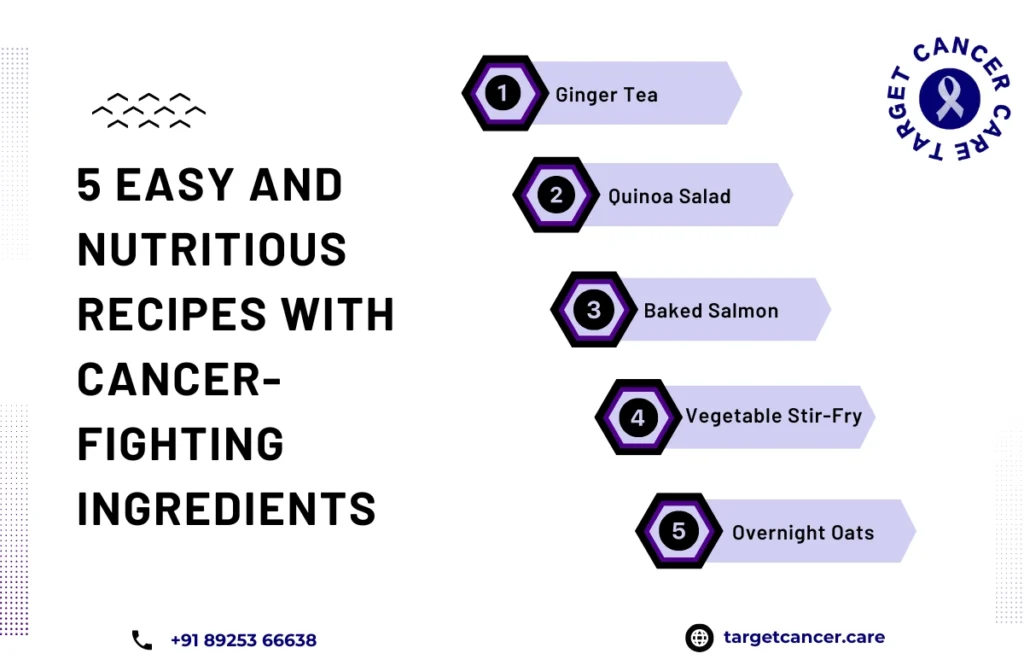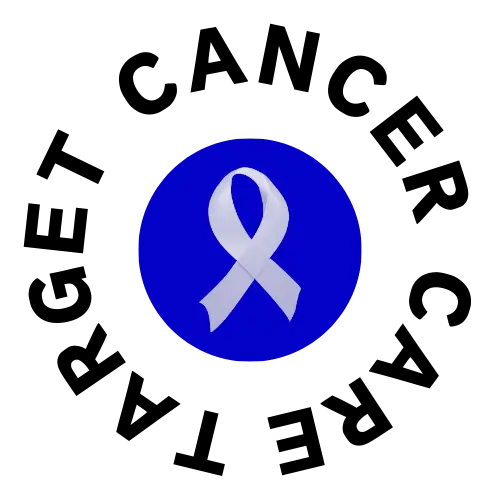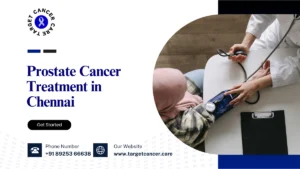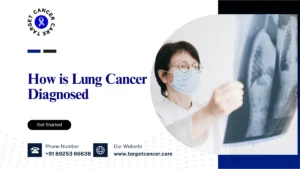The right nutrition is an essential part of cancer treatment and recovery. Understanding foods for cancer patients to avoid is crucial, as what you eat can have a profound effect on how well you tolerate treatment and how quickly you heal. There are certain foods that can hinder progress, weaken the immune system, and worsen treatment side effects.
Being aware of these foods empowers both patients and their families to make informed dietary choices. By avoiding harmful foods and incorporating beneficial ones, cancer patients can create a stronger foundation for healing and improve their chances for a better recovery outcome. Nutrition during this time isn’t just about avoiding problems—it’s about actively supporting the body’s healing process.
Foods for Cancer Patients to Avoid
Cancer patients often face unique nutritional challenges due to the disease itself and the side effects of treatment, including chemotherapy, radiation, and surgery. A well-balanced diet plays a crucial role in supporting the immune system, maintaining energy levels, and managing treatment side effects. However, some foods can interfere with recovery or exacerbate symptoms, so it’s important to know what to avoid.
- Processed Meats: Processed meats, such as sausages, hot dogs, and bacon, contain preservatives and chemicals like nitrates and nitrites, which have been linked to an increased risk of certain cancers. These meats can also contribute to inflammation and digestive discomfort.
- Fried and Fatty Foods: Fried foods and those high in unhealthy fats (trans fats and saturated fats) can increase inflammation and the risk of other health issues, including heart disease. Cancer patients should avoid foods such as fried chicken, French fries, and commercially baked goods.
- Refined Sugars and Sweets: High sugar intake can contribute to inflammation and negatively impact the immune system. Refined sugars in candies, soda, and pastries can cause blood sugar spikes, which may interfere with the body’s ability to fight cancer. Limiting these foods can help maintain balanced energy levels.
- Alcohol: Alcohol has been shown to increase the risk of several types of cancer. During cancer treatment, it can also impair the body’s ability to heal and worsen side effects such as dehydration, mouth sores, and nausea.
- Dairy Products (for Some Patients): Some cancer patients may experience difficulty digesting dairy, especially after chemotherapy or radiation treatments. Dairy products like milk and cheese can lead to digestive issues such as bloating and gas. It’s best to consult with a doctor or dietitian about whether dairy should be limited.
- Caffeinated Beverages: Excessive caffeine consumption can increase dehydration and interfere with sleep patterns, which is especially important for cancer patients who need rest for recovery. Reducing caffeine intake from coffee, soda, and energy drinks can help maintain hydration and promote better sleep.
- Raw or Undercooked Foods: Raw fish, meat, and eggs may contain harmful bacteria or parasites that can cause infections. Cancer treatments can weaken the immune system, making it harder for the body to fight infections. Therefore, it’s recommended to avoid raw or undercooked foods during treatment.
How Can Your Diet Help Manage Cancer Treatment Side Effects?
Managing side effects from cancer treatments such as chemotherapy, radiation, and surgery is crucial for maintaining the quality of life. Your diet can help alleviate common side effects, improve overall well-being, and provide necessary nutrients for recovery.
- Alleviating Nausea: Cancer treatment can often cause nausea and vomiting. To combat this, cancer patients should avoid greasy, spicy, and strong-smelling foods. Instead, focus on light, bland foods like crackers, rice, and applesauce. Incorporating ginger into the diet, either in tea or as a supplement, can also help soothe the stomach.
- Boosting Energy Levels: Fatigue is a common side effect of cancer treatment. Consuming small, frequent meals rich in protein and whole grains can provide steady energy throughout the day. Foods like eggs, lean meats, nuts, and quinoa can support energy levels and muscle repair.
- Managing Appetite Loss: Many cancer patients experience loss of appetite. Adding high-calorie, nutrient-dense foods like avocados, smoothies, and nut butters can help patients get the necessary nutrients without having to eat large quantities of food. Additionally, adding flavor with herbs and spices can make meals more appealing.
- Supporting Immune Function: The immune system can be weakened by cancer treatments, so it’s important to include foods that support immune health, such as fruits and vegetables rich in antioxidants (e.g., berries, broccoli, and spinach). A diet rich in vitamins and minerals can help the body recover and fight infections.
- Managing Weight Changes: Some cancer treatments can cause weight loss, while others can lead to weight gain. A diet rich in healthy fats, lean proteins, and fiber can help stabilize weight and ensure that the body is receiving the proper nutrients for recovery.
By following a cancer-specific diet and avoiding foods for cancer patients to avoid, you can better manage the side effects of treatment, improve your quality of life, and boost your immune system for a stronger recovery.
For those searching for cancer diet recipes, there are plenty of options to make nutritious meals that align with your treatment needs. Tailoring meals to include nutrient-dense foods while avoiding problematic ingredients can help ensure that your body gets the fuel it needs to fight cancer and recover effectively.

Foods to Combat Treatment Side Effects
Chemotherapy and radiation treatments are vital for attacking cancer, but they can also result in several unpleasant side effects, such as nausea, fatigue, and digestive issues. Incorporating the right foods can help minimize these side effects, aiding comfort and overall well-being during this challenging time. Here’s a look at the foods that can help manage treatment-related discomforts:
- Ginger: Widely recognized for its natural anti-nausea properties, ginger can be consumed in the form of tea or added to meals to help soothe upset stomachs and reduce nausea.
- Bananas: These are rich in potassium, which is essential for restoring lost electrolytes and providing a quick boost of energy.
- Broth-Based Soups: Easy on the stomach and hydrating, these soups are nourishing and provide warmth, making them ideal for patients struggling with appetite loss.
- Whole Grains: These offer a steady source of fiber, aiding digestion and providing consistent energy to keep patients feeling strong throughout the day.
Including these foods in daily meals can help alleviate the common side effects of treatment and ensure patients stay as comfortable as possible during their journey.
Foods to Add to Your Diet
While understanding foods for cancer patients to avoid is important, adding nutrient-dense foods that support recovery is equally essential. These foods can help boost immunity, restore energy levels, and enhance overall health. Here’s a focus on the essential categories of food that every cancer patient should include in their diet to foster better recovery:
- Lean Proteins: Proteins from chicken, fish, tofu, and legumes help with tissue repair and immune support, which are essential for healing.
- Healthy Fats: Avocados, olive oil, and nuts are rich in monounsaturated fats, which promote cellular function and help maintain energy levels.
- Fruits and Vegetables: A wide variety of colorful fruits and vegetables provide essential vitamins, antioxidants, and minerals that protect the body and support overall health.
- Whole Grains: Foods like brown rice, quinoa, and whole-wheat products offer sustained energy and important nutrients like B vitamins and fiber.
- Hydration: Staying hydrated is vital for supporting the body’s detoxification processes and promoting healthy organ function. Water, herbal teas, and low-sugar fruit juices are great options for hydration.
Incorporating these healthy, nutrient-rich foods into the diet can help patients fight fatigue, boost immune response, and support optimal recovery throughout treatment.
7-Day Meal Plan for Cancer Patients
Planning meals for cancer patients requires ensuring they are nutrient-dense, easy to digest, and supportive of their treatment needs. Below is a 7-day meal plan for cancer patients designed to provide energy, essential vitamins, and minerals, while maintaining overall well-being:
A well-balanced diet is crucial for cancer patients to maintain strength, support immunity, and reduce treatment side effects. This 7-day meal plan for cancer patients provides nutritious and easy-to-digest meals that align with a proper cancer diet and nutrition.
Day 1: Nourishing Start
- Breakfast: Oatmeal with honey and banana
- Lunch: Grilled salmon with quinoa and steamed broccoli
- Snack: Greek yogurt with flaxseeds
- Dinner: Lentil soup with whole wheat bread
Day 2: Gentle and Energizing
- Breakfast: Scrambled eggs with avocado toast
- Lunch: Chicken and vegetable stir-fry with brown rice
- Snack: Cottage cheese with mixed berries
- Dinner: Sweet potato and spinach curry
Day 3: Immune-Boosting Choices
- Breakfast: Smoothie with spinach, banana, and almond milk
- Lunch: Lentil salad with cherry tomatoes and olive oil
- Snack: Handful of almonds and walnuts
- Dinner: Grilled tofu with roasted vegetables
Day 4: Healing and Hydrating
- Breakfast: Chia pudding with coconut milk and mango
- Lunch: Baked salmon with mashed sweet potatoes
- Snack: Whole grain crackers with hummus
- Dinner: Vegetable broth with quinoa
Day 5: Protein-Rich Essentials
- Breakfast: Scrambled tofu with spinach
- Lunch: Grilled chicken with roasted carrots
- Snack: Peanut butter with apple slices
- Dinner: Brown rice with mixed beans
Day 6: Light and Nutritious
- Breakfast: Smoothie bowl with oats and flaxseeds
- Lunch: Baked fish with sautéed greens
- Snack: Hard-boiled eggs
- Dinner: Tomato and lentil stew
Day 7: Comforting and Wholesome
- Breakfast: Whole wheat pancakes with yogurt
- Lunch: Quinoa salad with chickpeas
- Snack: Mixed nuts and dried fruit
- Dinner: Vegetable soup with lean protein
These meal ideas support cancer diet and nutrition while offering variety and essential nutrients. For more cancer diet recipes, consult a nutritionist to customize based on individual health needs.
This meal plan ensures patients receive a balanced intake of key nutrients, while also addressing foods for cancer patients to avoid, helping to enhance their strength and overall health.
5 Easy and Nutritious Recipes with Cancer-Fighting Ingredients
Incorporating cancer-fighting foods into everyday meals doesn’t have to be complicated. Here are five easy-to-make recipes that are both nutritious and rich in cancer-fighting properties:
- Ginger Tea: Steep fresh ginger slices in hot water for 10 minutes for a soothing, anti-nausea drink.
- Quinoa Salad: Mix cooked quinoa with fresh cherry tomatoes, cucumbers, and a tangy lemon dressing for a refreshing dish.
- Baked Salmon: Bake seasoned salmon with herbs at 350°F for 20 minutes for a healthy, omega-3-rich meal.
- Vegetable Stir-Fry: Sauté a variety of seasonal vegetables in olive oil and garlic for a tasty, antioxidant-packed dish.
- Overnight Oats: Combine oats, almond milk, and berries in a jar and refrigerate overnight for a quick, healthy breakfast option.
These recipes are simple to prepare and full of nutrients that promote healing and provide energy.
Nutrition and Cancer Prevention
Nutrition and cancer prevention or supporting cancer recovery involves maintaining a healthy, nutrient-rich diet. Certain dietary strategies can significantly reduce cancer risk and promote long-term health. Here are a few ways to incorporate cancer prevention into your daily diet:
- Antioxidant-Rich Foods: Foods like berries, spinach, and nuts combat oxidative stress and protect the body from cellular damage.
- Limit Processed Meats: By cutting down on processed meats, you reduce exposure to potential carcinogens that can contribute to cancer.
- Whole Grains: Fiber-rich whole grains like brown rice, oats, and quinoa support digestive health and may help prevent certain types of cancer.
- Maintain a Healthy Weight: Proper nutrition and regular physical activity support healthy weight management, which lowers the risk of several types of cancer.
By understanding foods for cancer patients to avoid and following these simple strategies, you can help reduce the likelihood of cancer and enhance your overall well-being.
Fruits That Help with Cancer Treatment Effects
The best fruit for cancer patients provides essential nutrients and antioxidants that help mitigate treatment side effects like fatigue and nausea.
- Berries: Blueberries and strawberries are antioxidant-rich and help repair damaged cells.
- Oranges: Loaded with vitamin C, oranges boost immunity and help combat fatigue.
- Bananas: Gentle on the stomach, bananas replenish electrolytes lost during treatment.
- Papayas: Contain enzymes that promote digestion and nutrient absorption.
These fruits not only ease treatment side effects but also provide energy and hydration.
What Are the Best Foods to Eat After Chemotherapy?
After chemotherapy, the body needs specific nutrients to recover. Including fruits in your post-treatment diet can make a significant difference.
- Watermelon: Hydrates the body and replenishes lost fluids.
- Apples: High in fiber, apples aid digestion and help manage constipation.
- Pineapple: Its bromelain content reduces inflammation and supports digestion.
- Kiwi: Rich in vitamin C, kiwi strengthens the immune system.
The best fruit for cancer patients after chemotherapy are those that provide hydration, energy, and essential vitamins. Wondering what are the best foods to eat after chemotherapy? Look no further than a fruit-rich diet.
10 Top Foods for Cancer Patients
Maintaining a healthy diet is crucial for cancer patients, as it helps boost immunity, improve energy levels, and support recovery. Here are the 10 Top Foods for Cancer Patients that provide essential nutrients and aid in healing.
- Leafy Green Vegetables: Spinach, kale, and broccoli are packed with vitamins, minerals, and antioxidants that help strengthen the immune system.
- Berries: Blueberries, strawberries, and raspberries contain antioxidants that protect cells from damage caused by free radicals.
- Fatty Fish: Salmon, tuna, and mackerel are rich in omega-3 fatty acids, which help reduce inflammation and support overall health.
- Nuts and Seeds: Almonds, walnuts, flaxseeds, and chia seeds provide healthy fats, fiber, and essential vitamins that aid in recovery.
- Whole Grains: Quinoa, brown rice, and whole wheat contain fiber and nutrients that support digestion and maintain energy levels.
- Legumes and Beans: Lentils, chickpeas, and black beans are excellent sources of protein, fiber, and essential minerals for strength and repair.
- Turmeric: Curcumin, the active compound in turmeric, has anti-inflammatory properties that may help reduce cancer cell growth.
- Garlic and Onions: These contain sulfur compounds that boost immunity and may help prevent cancer cell development.
- Dairy Alternatives: Almond milk, soy milk, and plant-based yogurts provide calcium and protein without the added hormones found in some dairy products.
- Herbal Teas: Green tea, chamomile tea, and ginger tea are rich in antioxidants and can help reduce nausea and inflammation.
A well-balanced diet with these foods can help cancer patients stay strong and improve their overall well-being.
Healthy Foods to Eat During Cancer Treatment
Cancer treatment often changes the way the body reacts to food. Incorporating healthy foods to eat during cancer treatment, like fruits and vegetables, can ease these challenges.
- Smoothies: Blend bananas, berries, and almond milk for a nutrient-packed drink.
- Dried Fruits: Apricots and raisins are energy-dense and easy to carry.
- Soft Fruits: Pears and peaches are gentle on the stomach and high in nutrients.
- Oranges: These are excellent healthy foods to eat during cancer treatment for their refreshing and immune-boosting properties.
By choosing the best fruit for cancer patients, you can ensure they receive essential nutrients without adding stress to the digestive system.
What Types of Fruits Are Most Helpful?
Not all fruits are equally beneficial. The best fruit for cancer patients includes those that are:
- High in Antioxidants: Berries and pomegranates reduce oxidative stress.
- Rich in Water Content: Watermelon and cucumber help with hydration.
- Easy to Digest: Bananas and papayas are gentle on the stomach.
- Packed with Vitamins: Oranges and mangoes provide vitamins C and A.
Incorporating these into daily meals ensures a balanced intake of essential nutrients.
Rich in Nutrients: Vitamins, Carbs, and More
Fruits are natural sources of vitamins, carbohydrates, and essential minerals, making them an indispensable part of a cancer-friendly diet.
- Vitamins: Citrus fruits like grapefruits are rich in vitamin C, essential for immunity and healing.
- Carbohydrates: Natural sugars in bananas and dates provide quick energy to combat fatigue.
- Minerals: Apricots and mangoes contain magnesium and potassium, supporting muscle and heart health.
The best fruit for cancer patients not only tastes great but also provides a powerful boost to overall health.
Benefits of a Healthy Diet for Chemotherapy Patients
- A nutritious diet strengthens the immune system, which is often compromised during chemotherapy. Including antioxidant-rich options like broccoli, berries, and leafy greens helps protect healthy cells and supports healing. What are the best foods to eat while on chemotherapy often include these nutrient-dense choices.
- Managing side effects like nausea, fatigue, and poor appetite becomes easier with a balanced diet. Soft and soothing comfort food for chemo patients—such as oatmeal, clear soups, and mashed vegetables—can provide nourishment while being easy to digest.
- Protein-rich meals are essential for maintaining muscle mass and supporting tissue repair. Eggs, lean meats, legumes, and tofu are among what are the best foods to eat while on chemotherapy due to their high biological value and restorative benefits.
- Staying hydrated through water-rich fruits, broths, and herbal teas helps the body flush out toxins and reduces constipation. Including hydrating comfort food for chemo patients, like watermelon and diluted juices, can make hydration more appealing.
Tips for Maintaining a Healthy Diet During Cancer Treatment
- Eating small, regular meals helps manage nausea and prevents energy dips. Simple comfort food for chemo patients, like rice, toast, bananas, and applesauce, are gentle on the stomach and easier to tolerate during treatment.
- Incorporate high-calorie, high-protein options when weight loss becomes a concern. Smoothies with nut butters, Greek yogurt, and fruits rank among what are the best foods to eat while on chemotherapy because they offer concentrated nutrition in a small volume.
- Limit spicy, acidic, or greasy foods that may worsen mouth sores or indigestion. Instead, focus on bland yet nourishing options, such as steamed vegetables and boiled chicken, which are often considered comfort food for chemo patients.
- Enhance taste with natural flavors when chemotherapy dulls the palate. Adding lemon juice, mint, or cinnamon can improve the flavor of meals, making it easier to stick with what are the best foods to eat while on chemotherapy without overwhelming the senses.
Conclusion
For cancer patients, choosing the right foods is an essential part of the healing process. Foods for cancer patients to avoid that can hinder treatment and focusing on nutrient-rich options that support recovery, patients can increase their chances of a positive outcome. The key is to take an active role in your health by making mindful dietary choices that strengthen the immune system, manage side effects, and promote overall recovery. At Target Cancer Care, we emphasize the importance of good nutrition in the fight against cancer, empowering our patients to feel their best and achieve a successful recovery.



